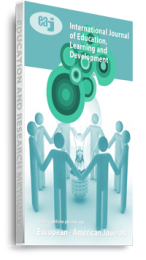The objective of this research is to describe the implementation of early childhood education program (ECEP) at Kindergarten of Subur Sejahtera Kendari, Indonesia. This research uses qualitative method, with Context, Input, Process and Product (CIPP) model evaluation design adopted from Daniel Stufflebeam (2003). The results of the study indicate that: (1) the context component covering the legal basis of the program has been fulfilled; (2) the input components that include human resources in the form of teachers and staff have been fulfilled, with appropriate academic qualifications, and adequate facilities and infrastructures; (3) the learning process implementation component has shown sufficient circumstances in accordance with those required in the national curriculum; and (4) product components covering output and outcomes are in good category. Thus, it can be concluded that the implementation of ECEP at Subur Sejahtera Kindergarten, Indonesia is in accordance with national standards of early childhood education. The suggestions that can be put forward are: (1) the competence of the kindergarten teachers still need to be improved; (2) the quality of teaching and learning process need to be improved; and (3) the teaching and learning process need to be managed more effectively by taking into account the developmental aspects required in accordance with national standards of education.
Keywords: Early Childhood Education, Management, Organization, Output, input.

